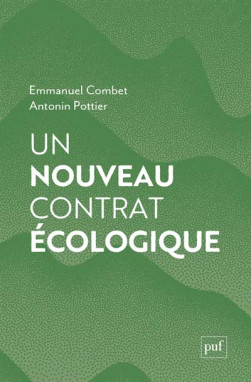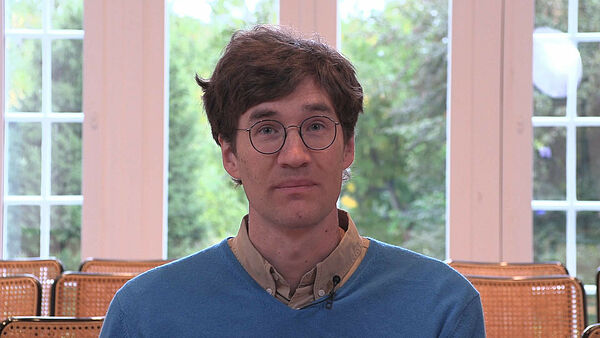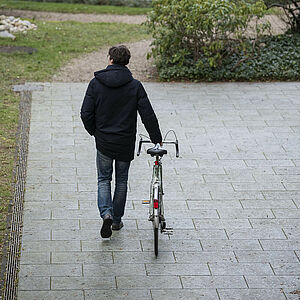
Antonin Pottier, Dr.
maître de conférences
École des hautes études en sciences sociales, Paris
Born in 1984 in Tours, France
Studied Mathematics and Physics at the École Normale Supérieure and Economics at the École des hautes études en sciences sociales
Project
“Power to Act,” a Practical Concept for the Climate Transition
The transition to low-carbon societies, a necessity to curb and stop climate change, raises formidable challenges. One, and not the least, is the possibility of making this transition while preserving and possibly enhancing social justice. The project aims at developing a concept of “power to act,” referring to people’s differential capacity to modify their way of living to reduce greenhouse gases emissions, a capacity rooted in possibilities offered by the social environment they live in. This concept conveys the fact that people always have an ability to behave and act differently than they actually do, so that GHG emissions are reduced. The “power to act” is a relational concept that links an emission of GHG to an agent that has the ability to make it not happen. From the point of view of emissions, it points to the agents who can act on them; from the point of view of agents, it points to the emissions they have the most power to reduce.The concept of “power to act” thus seems well suited to tackle several difficulties identified in the current conversation about climate transition and social justice. For example, instead of imposing a constant carbon price, irrespective of the “power to act” of the actors, such a policy targeting the emissions on which agents have the “power to act” could probably lead to less social disturbance. It can also be viewed in a dynamic way: public policies could be set to increase agents’ “power to act” (such as developing public transportation) to further reduce emissions in a second stage, and more easily.
The intuition guiding the project is that the concept of “power to act” has the potential to reframe these issues and several others.
Recommended Reading
Pottier, Antonin. Comment les économistes réchauffent la planète. Paris: Seuil, 2016.
Pottier, Antonin, Emmanuel Combet, Jean-Michel Cayla, Simona de Lauretis, and Franck Nadaud. “Who Emits CO 2? Landscape of Ecological Inequalities in France From a Critical Perspective.” FEEM Working Paper 014.2021, Fondazione Eni Enrico Mattei, Milan, 2021. https://www.feem.it/m
/publications_pages/ndl2021-014.pdf. French: “Qui émet du CO2? Panorama critique des inégalités écologiques en France.” Revue de l’OFCE, no. 169 (2020): 73–132.
Pottier, Antonin. “Expenditure Elasticity and Income Elasticity of GHG Emissions: A Survey of Literature on Household Carbon Footprint.” Ecological Economics 192 (2022): 107251. https://doi.org/10.1016/j.ecolecon.2021.107251.
Colloquium, 21.02.2023
How Economics Became Immaterial
The world is now heading for catastrophic climate change. The inability to prevent it despite decades of warnings raises questions about the way our societies function. These questions also concern the knowledge these societies have produced: how could we have failed to see, recognize, or appreciate the upcoming degradations? Why are natural upheavals often thought of little social consequence? What kind of knowledge has, in our mind, insulated societies from what happened to their natural environment? How has the invisibilisation of the interactions between natural and social world been produced and constructed?
I will present my project that focuses on economic knowledge within this broader context. I take as a starting point the considerable difficulties economics has in engaging with climate change. I want to provide explanations of the current situation by retracing economics’ long history of the neglect of environmental issues. To do that, I use materials from the economic literature of the two last centuries. I follow inflections of economic paradigms, compare how different economists have approached the same question, and study some theoretical controversies. Thanks to these sites where I observe how the relationship between the economy and the environment has been conceived, I show how the environment, nature, and the material foundation of societies have been gradually forgotten and disqualified as legitimate objects of investigation. This move is very much related to the autonomization of economics as a discipline. In the process of becoming a knowledge autonomous from other kinds of knowledge about social and natural worlds, economics also got rid of its ties to materiality, that is, it became immaterial. The constitution of economic knowledge has gradually rejected and shifted into its margins the very objects that are vital to study today.
Publications from the Fellow Library
Pottier, Antonin (Paris, 2024)
Pottier, Antonin ([S.l.], 2021)
Who emits CO2? Landscape of ecological inequalities in France from a critical perspective FEEM Working Paper ; No. 14.2021
Pottier, Antonin (Paris, 2020)
Qui émet du CO2? : Panorama critique des inégalités écologiques en France
Pottier, Antonin (Paris, 2020)
Faire l'économie de l'environnement Sciences sociales
Pottier, Antonin (Bassum, 2018)
A climate damage on production or on growth : what impact on the social cost of carbon?
Made at Wiko 05/29/24
Köpfe und Ideen 2023
Cycling Is Not Enough
a portrait of Antonin Pottier by Gerald Wagner


